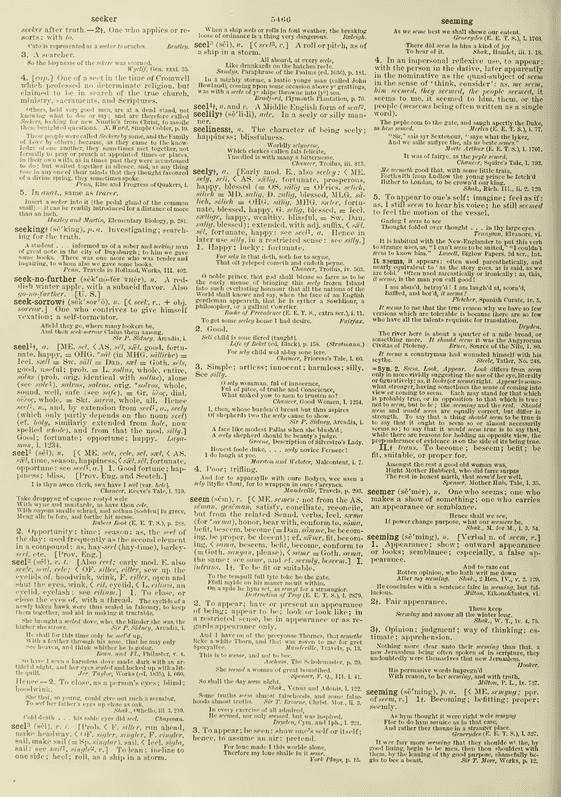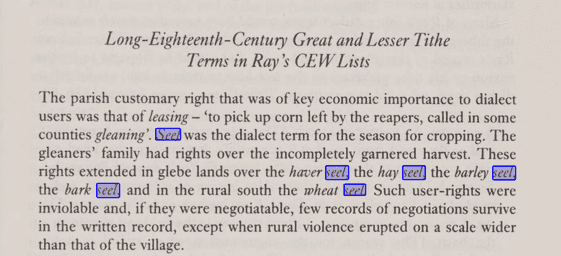Seel
Source : Century Dictionary web : http://triggs.djvu.org/century-dictionary.com/splash3.html
- Opportunity ; time ; season : as, the seel of the day: used frequently as the second element in a compound : as, hay-seel (hay-time), barley-seel etc. [Prov. Eng,]

Language, self, and society : a social history of language Cambridge, UK ; Cambridge, MA : Polity Press
Page 135
The parish customary right that was of key economic importance to dialect users was that of leasing — ‘to pick up corn left by the reapers, called in some counties gleaning’. Seel was the dialect term for the season for cropping. The gleaners’ family had rights over the incompletely garnered harvest. These rights extended in glebe lands over the haver seel, the hay seel, the barley seel, the bark seel, and in the rural south the wheat seel. Such user-rights were inviolable and, if they were negotiatable, few records of negotiations survive in the written record, except when rural violence erupted on a scale wider than that of the village.
"Le droit coutumier paroissial qui revêtait une importance économique primordiale pour les locuteurs dialectaux était celui de la location — 'ramasser le grain laissé par les moissonneurs, appelé dans certains comtés glanage'. Seel était le terme dialectal désignant la saison des récoltes. La famille des glaneurs avait des droits sur la récolte incomplètement ramassée. Ces droits s'étendaient sur les terres du domaine paroissial, englobant le seel de l'avoine, le seel du foin, le seel de l'orge, le seel de l'écorce, et dans les campagnes du sud le seel du blé. Ces droits d'usage étaient inviolables et, s'ils étaient négociables, peu de traces de négociations subsistent dans les archives écrites, sauf lorsque la violence rurale éclatait à une échelle plus large que celle du village."
